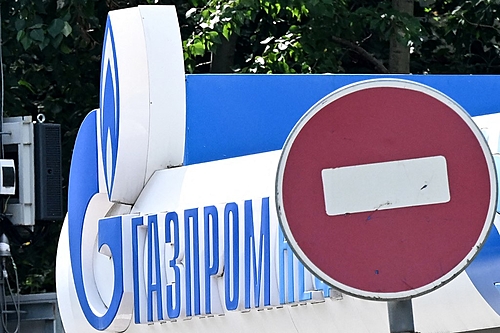
Russia will cut oil production to 500,000 barrels a day from March. The announcement was made on February 10th. According to Russian Deputy Prime Minister Alexander Novak, the decision will contribute to the re-establishment of market relations in the context of sanctions applied against Moscow.
The measure was a reaction from the Kremlin to the decision taken in December by the G7 countries, as well as the European Union and Australia, to establish a ceiling of US$ 60 per barrel of Russian oil as a sanction for the war in Ukraine.
“When making the new decisions, we will act based on the current market situation. This is a voluntary reduction, there were no consultations about this with anyone,” Novak said, adding that the action was a response to the “destructive energy policy of the countries of the collective West”.
In reaction to the introduction of price caps, President Vladimir Putin had already signed a decree at the end of December 2022 prohibiting Russian exporters from entering into and executing contracts with countries that adhered to such restrictions. The decree came into force on February 1, 2023. According to the document, exporters will have to provide data on the export prices of oil and derivatives to the Federal Revenue Service for inspectors to release the cargo.
In an interview with Brasil de Fato, the chief analyst of Russia’s National Energy Security Fund, Igor Ushkov, said that the decision to reduce production is aimed at increasing federal budget revenues and the price of oil.
With the price cap, Russia redirected its exports to Asian countries such as China and India. However, as the volume of exports to these countries increased, the negotiation involved high discounts for states that did not adhere to the sanctions.
“In an attempt to focus entirely on Asian markets, Russian companies have begun to grant large discounts, which reach US$35 per barrel. The main objective is to change this situation, because the main buyers have started to see this as a kind of new normal. Thus, the first objective of the current decision is to push prices up because, considering the discounts, Russia will profit more, and the higher the prices, the greater the income for the budget”, explains Ushkov.
Russia’s second goal would be to push consumers to lower these discounts. The analyst explains that, when Russia reduces supply on the world market, this will generate deficit and the increase in the price of oil. As a result, countries like India and China, even though they are partners, will pay more for commodity.
“So they can, for convenience, lower discounts for Russian oil by paying more to Russia. Thus, Russia restores the volume of exports on the world market, reduces the deficit, and all oil will have a lower price for countries in Asia that consume oil from Russia. So this is also a blow to discounts, which remain very high,” says Igor Ushkov.
Oil as an “energy weapon”
The US reacted to the Russian decision by saying that Moscow “want to use energy as a weapon again”. The Strategic Communications Coordinator of the National Security Council of the White House said that the North American country continues to consider it necessary not to allow the Russian president to illegally profit from oil and finance his army.
Spokesman John Kirby also declared that “once again, Putin is willing to turn energy into a weapon”. “This move, if true, is not a huge surprise as a reaction to the price cap and just shows the extent to which he is willing to use resources like energy as a weapon,” he said.
For the Chief Analyst of the Russian National Energy Security Fund, Igor Ushkov, the West’s negative reaction is natural, as the rise in oil prices tends to harm the economy of countries that import the product.
According to him, “Western countries evidently receive this decision from Russia very negatively, because they assume that in this way Russia will create a deficit in world market supply and this will lead to higher prices, again in the context of increased demand from China. And when the price of oil rises on the world market, Western countries suffer, because they are oil importing countries, both the US and the countries of Europe. And, as a result, when oil rises, this is reflected in fuel prices on world markets in Europe and, above all, in the US”, he explains.
On the other hand, Igor Ushkov points out that the US has already manipulated the price of oil on other occasions. An example was a case that occurred in 2021, when OPEC+ members voluntarily reduced production.
“The US itself interferes in the market, it constantly speculates, in particular by reselling oil from its strategic reserves, which tends to push oil prices down. Basically the same thing, but in the opposite direction, that’s what the US does. Therefore, accusing Russia of using some kind of energy weapon based on this reality is quite strange”, says the analyst.
Editing: Patricia de Matos
Source: www.brasildefato.com.br

